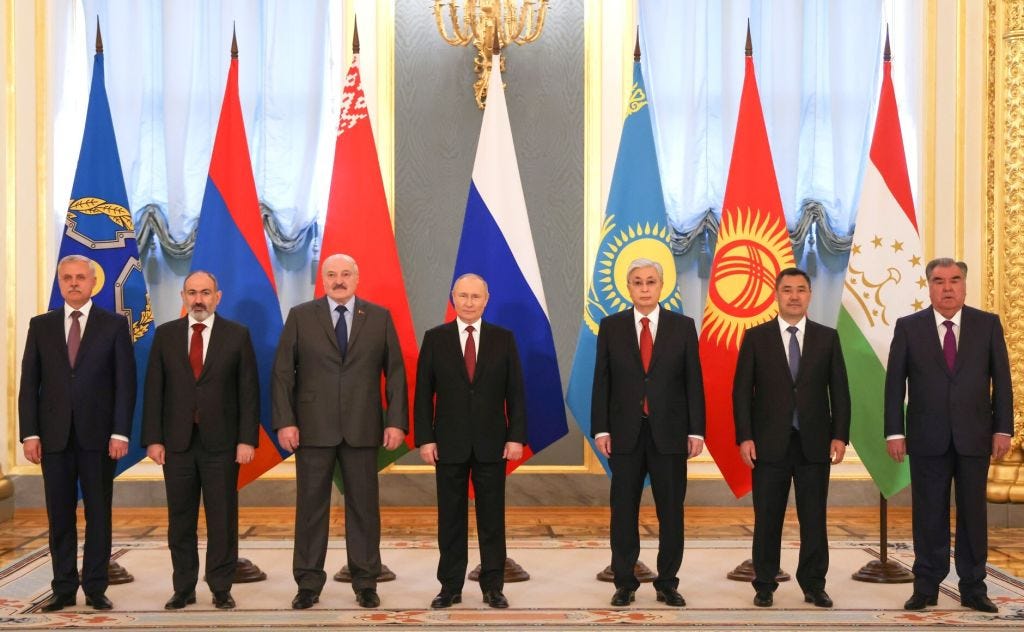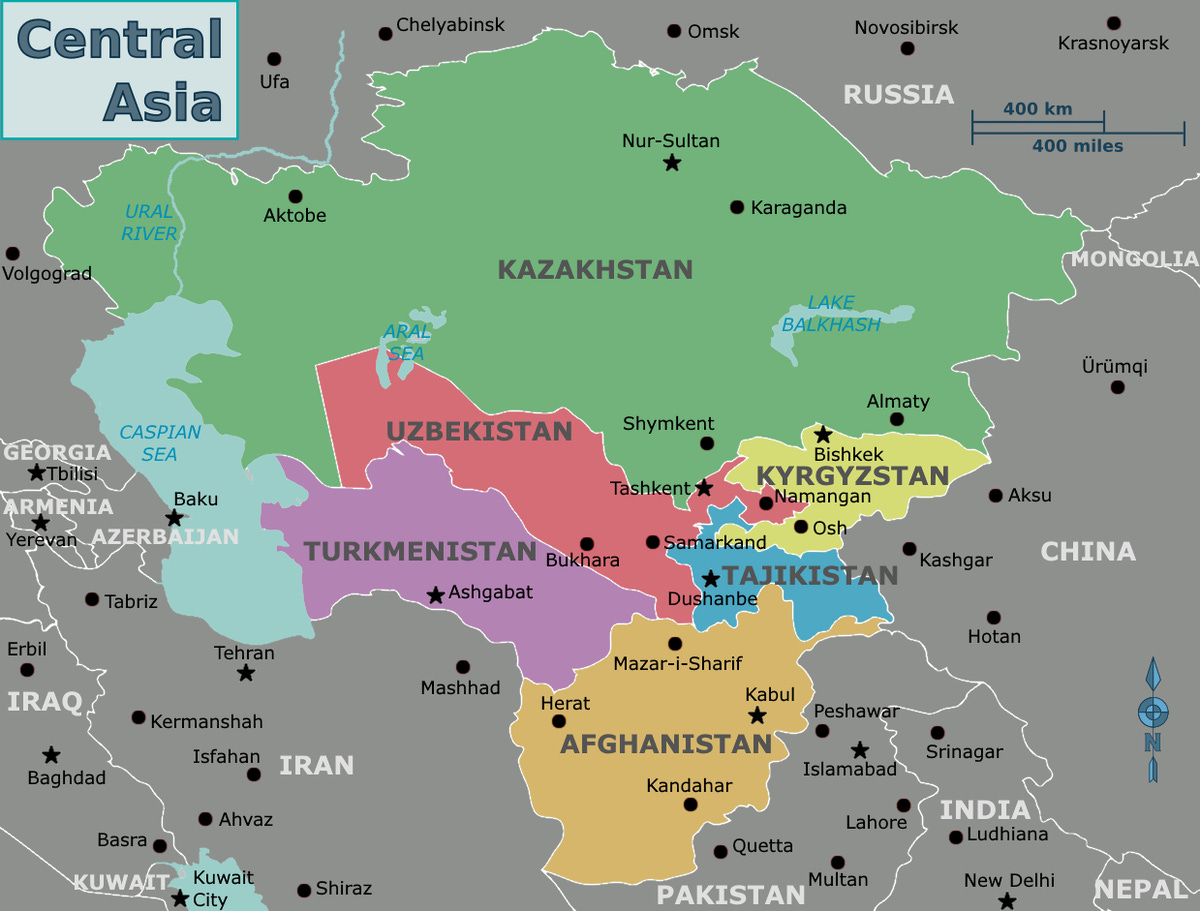Jul 21: Joby Warrick, Shadow bazaar
My introduction and Warrick's brief explainer as published in The Washington Post on July 20, 2023
Before reading…
You might be wondering how Russia can continue to supply its soldiers at the front with an infinite supply of armaments and equipment despite sanctions and other measures, especially after the incisive reduction of gas and oil imports to the West, applied to it by Ukraine’s allies.
In Italian we say, “fatta la legge, trovato l’inganno”, which roughly translates as the law has been made, and as has the way to get around it. In other words, every law has a loophole. From the start of the full-scale invasion, there has been a massive effort to find those loopholes and close them up as much as possible through punative measures and diplomatic dialogue. It’s time consuming and requires forensic investigation as well as the willingness on behalf of all those involved to do the right thing.
I’m re-posting information about sanctions evasions and alternative import routes used by Russia from this brief piece by Joby Warrick. You can find the full article in the Washington Post. Warrick focuses on Kyrgyzstan, but there are other countries that have become ‘shadow bazaars’ that require attention—Georgia, for example.
Ukraine, with the support of its allies, isn’t just fighting a kinetic war on the ground: Ukraine and its allies are fighting on the economic, financial, energy, humanitarian and information fronts—non-kinetic areas of combat. You can expect more on these issues in future posts.
Shadow bazaar
Published by The Washington Post on July 20, 2023
On the shipping label, the Chinese drones were billed as heavy-duty crop-dusters, the kind used by orchards and big farms. But the identity of the buyer — a Russian company that purchased a truckload of the aircraft in early May at nearly $14,000 each — hinted at other possible uses.
The drones’ potential military value, ironically, had been noted by Russia’s government, which last year seized four aircraft of the same model in eastern Ukraine and claimed that Kyiv was planning to use them for chemical warfare. The sturdy all-weather quadcopters are built to carry payloads of nearly 70 pounds and are designed to glide at treetop level trailing a fog of liquid chemicals.
Whatever their intended use, the drones were on the final leg of a trek across Central Asia when they were intercepted by customs officers near the border between Kazakhstan and Kyrgyzstan. To U.S. officials recounting the events weeks later, the episode was unusual: More often than not, they said, such goods pass into Russia uninterrupted.
The seizure of the drones was hailed as a rare victory in a whack-a-mole effort to halt the flow of banned hardware and electronics pouring into Russia in support of its war effort in Ukraine. Blocked from procuring military goods from Western countries, Moscow has increasingly looked for help from the former Soviet states of Central Asia, some of which are historically and financially bound to Russia but also trade extensively with Europe and China.
Biden administration officials say they are particularly concerned about the role played by Kyrgyzstan, the country from which the drone shipment originated. The mountainous, landlocked country of 6.7 million people was once the southern frontier of the Soviet empire, and it is now home to numerous businesses that have become a conduit for Western and Asian goods that Russia can’t legally obtain elsewhere, officials said in interviews.
Following the Kremlin’s Ukraine invasion — and with greater intensity in recent months — Kyrgyzstan witnessed a striking expansion of import-export companies that do business mainly with Russia. The firms are profiting from soaring sales of sanctioned Chinese and European goods — from drones and aircraft parts to rifle scopes and advanced bomb circuitry — most of which are flown or shipped overland to companies in Russia, said a senior U.S. official with detailed knowledge about the transactions.
After months of fruitless visits to the Kyrgyz capital of Bishkek by a stream of U.S. and European diplomats, the Biden administration is preparing new economic measures to pressure the country to halt the trade, according to two U.S. officials familiar with the plans. The actions, which in the past have included sanctions or a “blacklisting” of companies accused of violations, could come as early as this week, said the officials, who spoke on the condition of anonymity to discuss diplomatically sensitive deliberations.
“Kyrgyzstan, while small relative to other countries, is a clear example of every factor at play at once to create an unacceptably [sanctions] evasion-friendly environment,” the senior official said.
Publicly accessible trade documents offer hints about the scale of the Kyrgyz shadow bazaar. Records show the overall volume of Kyrgyzstan’s exports to Russia skyrocketed in 2022, rising by 250 percent over the previous year, before the invasion of Ukraine. For some items, such as rifle scopes, there was no previous record of Kyrgyzstan ever exporting such goods to Russia.
Trade documents also suggest a high level of coordination with Moscow’s procurement efforts. Records from early this year show Kyrgyz companies making bulk purchases of sensitive electronics — including hundreds of thousands of dollars’ worth of specialized semiconductors and voltage amplifiers — from Chinese and South Korean companies in February and March. A nearly identical quantity of the same types of electronics was exported from Kyrgyzstan to Russia over the same period, the documents show.





